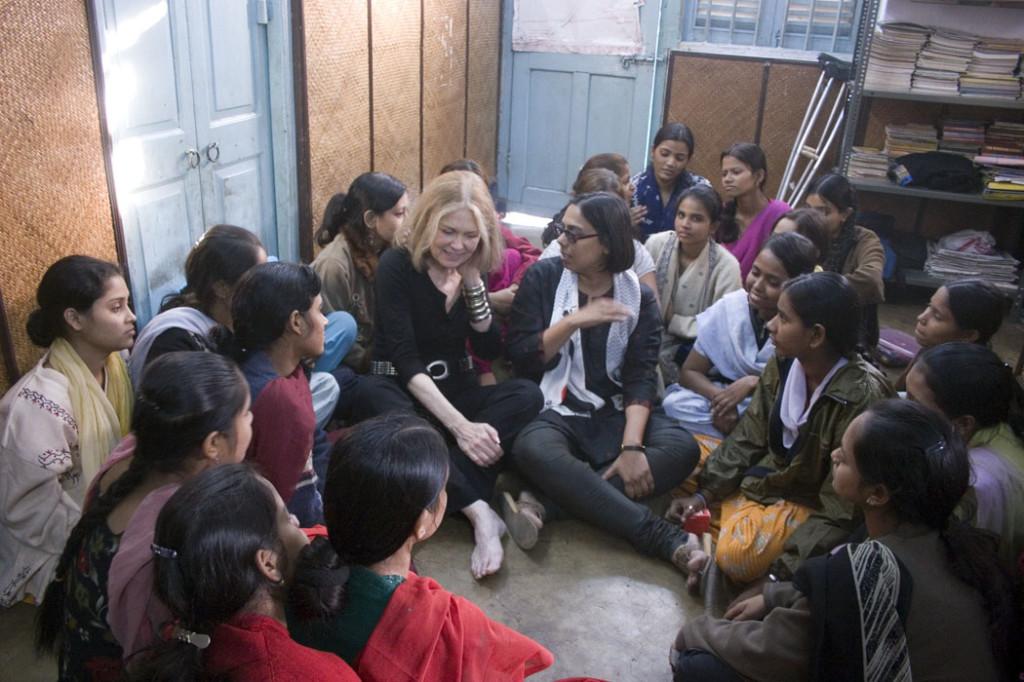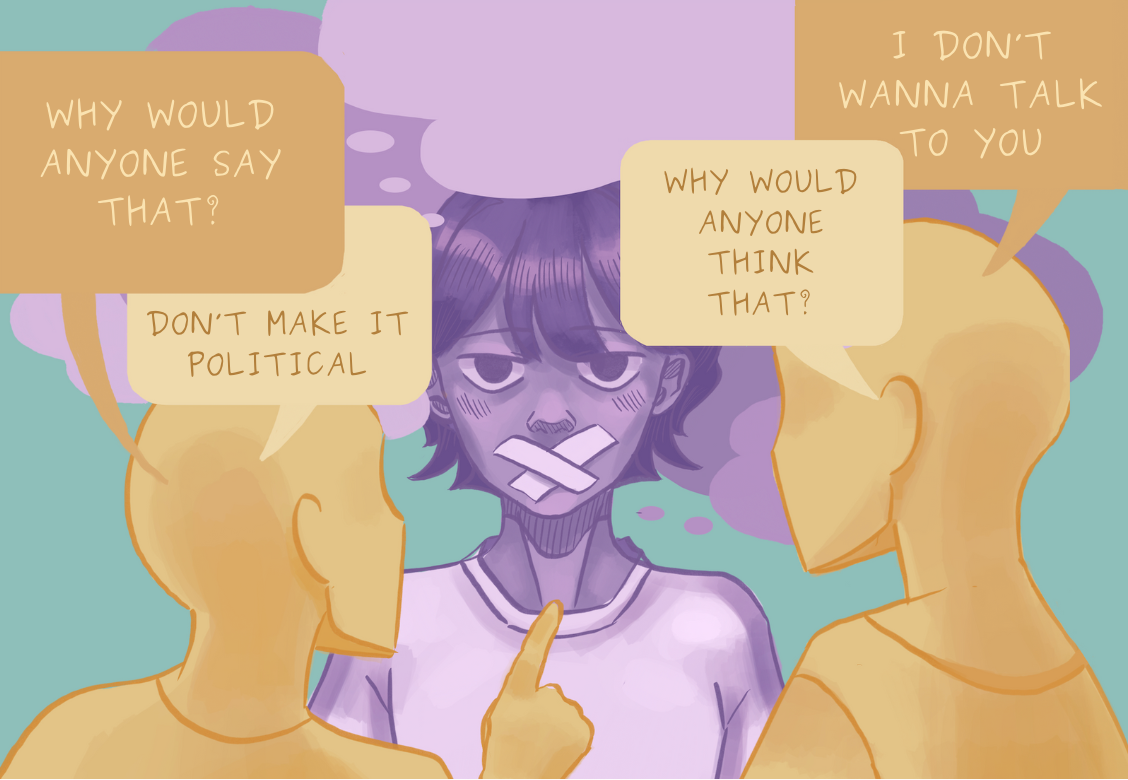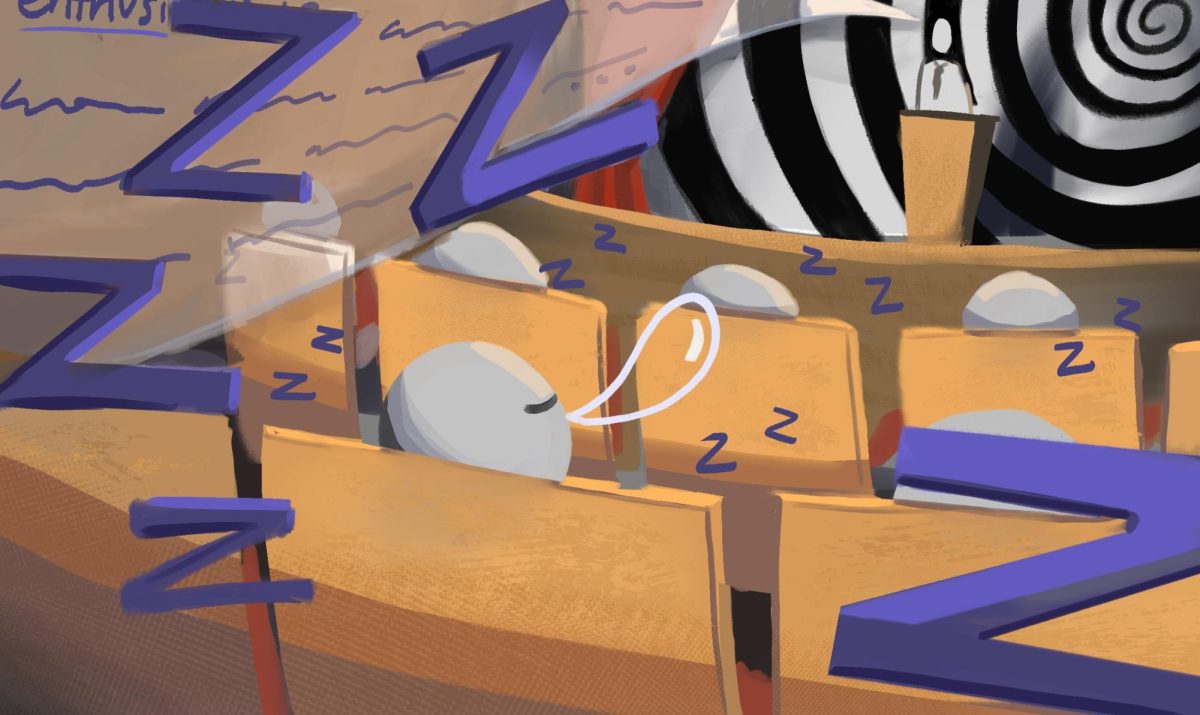“The Mafia threaten[s] me. My staff member was stabbed and arrested on false charges last year because the corrupt members of the police were actually in a collusion with the sex traffickers. I just have to carry on tenaciously, to work with the poor in our society such as to balance out the bad.”
Fifty-five words. That’s all it took for my life to completely change. When my mom said that some people could have a profound impact on you solely due to their character, I simply ignored her. After hearing those 55 words from Ruchira Gupta, I realized how wrong I was to deride her statement.
It took me almost two months to track down Gupta, an Emmy-award winning sex trafficking abolitionist, for an interview. Several e-mails and phone calls later, her contact in Delhi eventually responded saying that she was, to my dismay, in New York.
Nonetheless, what I had read about her drove me on. Her ability to salvage thousands of hapless minors from the clutches of sexual slavery couldn’t have happened without sheer determination, especially in a country like India, where such work is undermined at every single step taken.
I insisted on talking with her. Frankly, I couldn’t have asked for more. Every single word she spoke made me feel that the two-month wait was more than worth it. Her simplicity, gentleness, and courage completely took me aback. For her, menacing threats from the Mafia and unscrupulous politicians were a negligible price to pay if it meant saving even a single girl’s life.
How can a woman who has been provided with as many opportunities in life as myself be so endlessly dedicated to risking her life to save young girls? Why can I not be doing the same things?
These girls were being verbally or physically abused, and trapped in rooms where they are drugged, and, more importantly, stripped of a chance to even experience those small adventures which I so easily take for granted. Learning that overwhelmed my already cluttered brain.
The knowledge that Gupta had poured throughout her descriptive responses throughout the interview contributed to my sheltered mentality’s gradual, yet inevitable transformation. I learned about how villages were almost wiped of females since the majority of the girls were sent to the city after being deceived right into the inescapable world of sex slavery.
Being a 16-year old girl who has found protection, enrichment, and shelter in the same school for her whole life, learning about the cruelty such young girls are vulnerable to caused guilt to creep into my brain at an exponential rate.
I can’t even imagine spending more than a month separated from my family. I can’t imagine not having an education, and friends to whom I can complain about my daily “struggles” (the usual having an A instead of an A+, or getting in an argument over a boy). I can’t imagine not possessing an iPhone or a Mac, and I can’t imagine not having at least three pairs of shoes.
Then there are those young girls who dream of learning how to read, of touching the grass of their villages again, of being embraced by their mothers one last time. Of being free.
You can imagine that, after speaking to Gupta, there was no way I could return to my old life. I can’t eat without thinking about if another young girl who was sold into slavery is being given food at all. I can’t sleep on my gargantuan bed without wondering if that 13-year old has a mattress in her brothel.
What is life if I can’t help others around me? At least saving one girl will be a reward for a lifetime, and hopefully we can all do the same.


















![“[Building nerf blasters] became this outlet of creativity for me that hasn't been matched by anything else. The process [of] making a build complete to your desire is such a painstakingly difficult process, but I've had to learn from [the skills needed from] soldering to proper painting. There's so many different options for everything, if you think about it, it exists. The best part is [that] if it doesn't exist, you can build it yourself," Ishaan Parate said.](https://harkeraquila.com/wp-content/uploads/2022/08/DSC_8149-900x604.jpg)




![“When I came into high school, I was ready to be a follower. But DECA was a game changer for me. It helped me overcome my fear of public speaking, and it's played such a major role in who I've become today. To be able to successfully lead a chapter of 150 students, an officer team and be one of the upperclassmen I once really admired is something I'm [really] proud of,” Anvitha Tummala ('21) said.](https://harkeraquila.com/wp-content/uploads/2021/07/Screen-Shot-2021-07-25-at-9.50.05-AM-900x594.png)







![“I think getting up in the morning and having a sense of purpose [is exciting]. I think without a certain amount of drive, life is kind of obsolete and mundane, and I think having that every single day is what makes each day unique and kind of makes life exciting,” Neymika Jain (12) said.](https://harkeraquila.com/wp-content/uploads/2017/06/Screen-Shot-2017-06-03-at-4.54.16-PM.png)








![“My slogan is ‘slow feet, don’t eat, and I’m hungry.’ You need to run fast to get where you are–you aren't going to get those championships if you aren't fast,” Angel Cervantes (12) said. “I want to do well in school on my tests and in track and win championships for my team. I live by that, [and] I can do that anywhere: in the classroom or on the field.”](https://harkeraquila.com/wp-content/uploads/2018/06/DSC5146-900x601.jpg)
![“[Volleyball has] taught me how to fall correctly, and another thing it taught is that you don’t have to be the best at something to be good at it. If you just hit the ball in a smart way, then it still scores points and you’re good at it. You could be a background player and still make a much bigger impact on the team than you would think,” Anya Gert (’20) said.](https://harkeraquila.com/wp-content/uploads/2020/06/AnnaGert_JinTuan_HoHPhotoEdited-600x900.jpeg)

![“I'm not nearly there yet, but [my confidence has] definitely been getting better since I was pretty shy and timid coming into Harker my freshman year. I know that there's a lot of people that are really confident in what they do, and I really admire them. Everyone's so driven and that has really pushed me to kind of try to find my own place in high school and be more confident,” Alyssa Huang (’20) said.](https://harkeraquila.com/wp-content/uploads/2020/06/AlyssaHuang_EmilyChen_HoHPhoto-900x749.jpeg)















